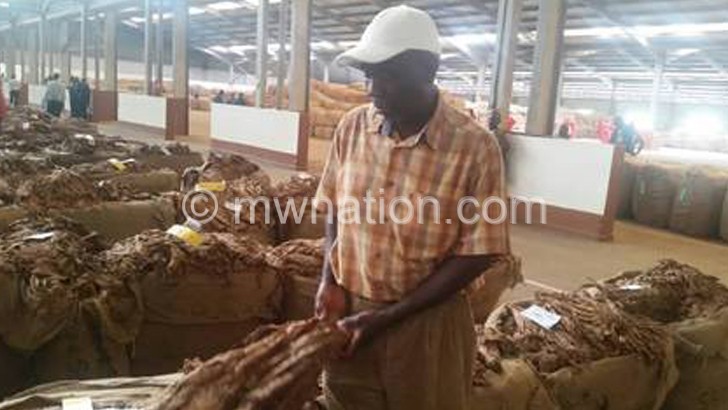Tobacco stakeholder discuss diversification
Tobacco stakeholders have given their views regarding diversifying from the crop at a time the country’s main foreign exchange earner is under pressure from anti-smoking lobbyists.
The stakeholders spoke on Wednesday in Lilongwe at a consultative meeting on the alternative crop to tobacco.
Speaking at the meeting, Hugh Saunders, managing director of Alliance One, one of the tobacco buying and processing companies, cautioned on the conflicting information sent to farmers about switching from tobacco to other crops, admitting that no crop has yet been identified to replace tobacco.
He said while there is a need to shift from tobacco, messages being passed on to farmers are not packaged well; hence, could do more harm than good.
Said Saunders: “I think that it is dangerous to start telling farmers to move away from tobacco production when we don’t have a solution. The solution is to have an alternative crop. Tobacco is a high value crop and there are factors that need to be taken into consideration when pondering on this issue.”
Ministry of Agriculture, Irrigation and Water Development director of extension services Albert Changaya said the issue of an alternative crop to tobacco is not new as such there is need for advocates to look at what previous advocates did and learn from their successes and failures.
“This issue dates back to as early as the 1980s. Suggested alternative crops such as paprika have come and gone, therefore, we need to look at what happened to be where we are to avoid moving in circles,” he said.
Parliamentary Agriculture Committee deputy chairperson James Munthali said diversifying from tobacco has to be done in a realistic way.
He said Parliament enacted the Warehouse Receipt Law which can help in identifying more valuable crops to be sold through structured markets such as AHL Commodities Exchange (AHCX) and Agriculture Commodities Exchange (ACE) for Africa.
Said Munthali: “In my understanding, we are not going to replace tobacco overnight, but we need to gradually replace it.
“The volumes we used to sell in the past have dropped which is a wake-up call,” he said.
In an interview, vice-president of Foundation for a Smoke Free World Jim Lutzweiler said consultations emanated from increasing trends that tobacco is becoming less acceptable on the world market which means that alternatives ought to be identified before it is too late for economies that are dependent on tobacco.
In Malawi, figures show that tobacco contributes about 50 percent of foreign exchange.





